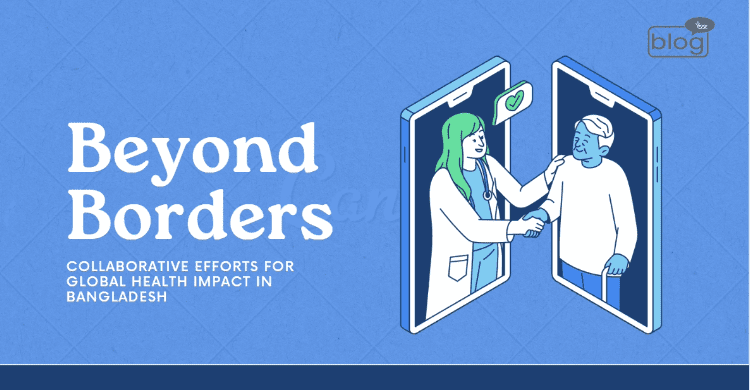Global health initiatives have transformed the landscape of healthcare, transcending geographical boundaries and bringing about positive change in various parts of the world. One such country that has witnessed significant progress through collaborative efforts is Bangladesh. This article explores the current landscape of global health initiatives in Bangladesh, strategies for effective collaboration, successful implementation stories, challenges encountered and overcome, future prospects, and recommendations for strengthening collaborative efforts.
Strategies for Effective Global Health Collaboration
Efficient global health collaboration requires careful planning, coordination, and understanding of the diverse partnership models available. By exploring different types of collaboration, stakeholders can identify the most suitable options for their specific needs. Public-private partnerships, academic collaborations, and community-based initiatives are just a few examples of effective models that have yielded positive health outcomes in Bangladesh. Each model offers its unique strengths and weaknesses, and understanding these intricacies is crucial for successful implementation.
Exploring different types of collaboration
Private partnerships (PPPs) are crucial in harnessing the knowledge and resources of both public and private organizations to tackle health challenges. These collaborations have shown success, in various areas like distributing vaccines developing healthcare infrastructure and building capacity. On the hand academic partnerships promote the exchange of knowledge, collaborative research and training programs that contribute to the creation of sustainable healthcare systems. Community based initiatives prioritize involving communities actively empowering them to take ownership of their health and overall well-being.
Assessing their respective strengths and weaknesses
While PPPs ensure access to resources and expertise, they may face challenges related to sustainable funding and aligning priorities between public and private partners. Meanwhile, academic collaborations bring forth valuable research and innovation but may lack scalability and community engagement. Community-based initiatives may face limitations such as the need for capacity building and overcoming cultural barriers. Understanding these strengths and weaknesses allows stakeholders to tailor their collaboration strategies effectively.
Successful Implementation Stories
Examining real-world examples of successful implementation provides valuable insights and inspiration for collaborative efforts. Bangladesh has demonstrated remarkable achievements through partnerships such as the GAVI Alliance, which supports the country’s immunization programs. The collaboration between BRAC, a leading NGO, and the government of Bangladesh has also yielded positive results in improving maternal and child health. These success stories highlight the power of collaborative efforts in driving meaningful change.
Challenges Encountered and Overcome
Collaborative efforts in global health are not without challenges. Identifying common hurdles and strategies employed to overcome them can guide future partnerships towards success.
Discussing common hurdles in global health collaboration
One common challenge is the disparity between the goals and expectations of different stakeholders. Misalignment can hinder progress and compromise the effectiveness of collaboration. Issues related to funding, limited resources, and bureaucratic hurdles also pose significant challenges. Cultural differences, language barriers, and a lack of understanding of local contexts can further complicate collaborations.
Strategies employed to overcome challenges
Addressing these challenges requires a comprehensive approach. Regular communication, setting clear goals and expectations, and building trust among partners are essential. Establishing local partnerships to navigate cultural and contextual complexities and ensuring transparency in decision-making also play crucial roles. Flexibility, adaptability, and a willingness to learn from setbacks are key strategies for overcoming challenges in global health collaboration.
Future Prospects and Recommendations
The future of global health collaboration in Bangladesh is promising, given the evolving landscape of partnerships and changing geopolitical dynamics. Understanding emerging trends and recommending strategies for strengthening collaborations are essential for sustained impact and progress in healthcare.
Trends shaping the future of collaboration
Shifting priorities in global health, advancements in technology, and growing recognition of the importance of equity and social determinants of health shape the future of global health collaboration. Embracing innovation, harnessing the power of data, and promoting inter-sectoral collaborations will be vital in addressing emerging health challenges in Bangladesh and beyond.
Global health in the context of changing geopolitical dynamics
The geopolitical landscape has a profound influence on global health collaboration. As political dynamics change, it is crucial to adapt collaboration strategies accordingly. Navigating geopolitical challenges requires diplomacy, active engagement with local stakeholders, and promoting inclusivity and global solidarity.
Recommendations for strengthening collaborative efforts
To strengthen collaborative efforts in global health, policymakers should prioritize policies that facilitate international partnerships while safeguarding national interests. Funding mechanisms should be streamlined and aimed at promoting long-term sustainability. Investing in healthcare infrastructure, human resources, and research capabilities can further enhance collaborative efforts, ensuring sustained impact.
Effective collaboration is essential for achieving global health impact. In Bangladesh, collaborative efforts have transformed healthcare delivery and outcomes, setting an example for other countries facing similar challenges.
By embracing diverse partnership models, drawing insights from successful implementations, overcoming challenges, and adapting to the changing landscape, stakeholders can continue working towards a healthier global community. The journey towards improved global health begins by recognizing the power of collaboration and fostering ongoing efforts to make a positive and lasting impact beyond borders.
To read more blogs like this, click here
Writer
K.M. Asif Rahmotullah
Intern
Content Writing Department, YSSE

